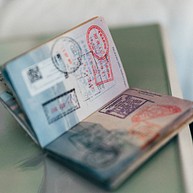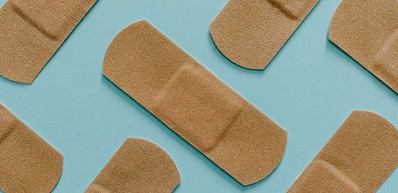
-
![bus in Addis Ababa]() Provided by: Francisco Anzola/cc by 2.0/Wikimedia
Provided by: Francisco Anzola/cc by 2.0/Wikimedia

Our travel guides are free to read and explore online. If you want to get your own copy, the full travel guide for this destination is available to you offline* to bring along anywhere or print for your trip.
*this will be downloaded as a PDF.Price
€4,95
Public Transport
The guide was updated:Public busses aren't the most efficient way of getting around. Instead, most locals use the smaller, faster blue-and-white mini-busses. Fares in these are very moderate and normally fixed. Destinations will often be yelled out by staff on board the mini bus at major intersections/hubs.
Addis Ababa now also has a light rail system, with lines connecting north and south (stops at Merkato, Meskal Square, and Menelik II Square), and east and west (stops at Meskal Square and Mexico Square). Tickets may be purchased at stations.
Useful Information
Digital Travel Guide Download
Our travel guides are free to read and explore online. If you want to get your own copy, the full travel guide for this destination is available to you offline* to bring along anywhere or print for your trip.
*this will be downloaded as a PDF.Price
€4,95

Addis Ababa is a rather safe city where violent crime is uncommon, but travellers are advised to exercise vigilance and be weary of pick-pocketing and muggings which occur fairly frequently, and are not exclusively targeted at tourists (these have been especially common along Churchill Avenue, in Piazza and Meskal Square).
If invited for an unsolicited "culture show" decline politely but firmly, and continue on your way. This is one scam to which tourists have often fallen prey. Avoid talking to anyone approaching to sell you things in the street.
Homosexuality remains both illegal (with punishments of up to 10 years imprisonment if convicted) and severely morally condemned in Ethiopia. So strong is the sentiment, that some hotels may refuse business to clients suspected of being in a same-sex relationship. It is strongly advised that same-sex couples keep a very low profile and avoid any form of public displays of affection.
Read more

Passport / Visa
Entry visas to Ethiopia are necessary for citizens of all countries with the exception of Djibouti and Kenya. Travellers must apply for visas in advance, but visas on arrival are issued at the Addis Ababa International Airport to nationals of 40 countries: Argentina, Australia, Austria, Belgium, Brazil, Canada, China, Czech Republic, Denmark, Finland, France, Germany, Greece, Hong Kong, India, Ireland, Israel, Italy, Japan, Kuwait, Luxembourg, Macau, Mexico, Netherlands, New Zealand, North Korea, Norway, Poland, Portugal, Russia, Slovakia, South Africa, South Korea, Spain, Sweden, Switzerland, Taiwan, Thailand, United Kingdom, United States. As of 2017, nationals of most countries eligible for visa on arrival can also apply for eVisa (first point of entry for eVisa holders must be Addis Ababa Bole International Airport).
Read more

Best Time to Visit
Although the sun shines nearly all year in Addis Ababa, the absolute best time to visit is during the dry season, roughly from September to March. This period is also when two of Ethiopia's major festivals (Meskel and Timkat) are celebrated, which is done with great swing and accompanied by major processions. The summer months (June to August, the "rainy season") aren't the most favourable, especially for trips to elsewhere in the country.
Read more

Addis Ababa Bole International Airport (ADD)
Although the Bole International Airport is only a few kilometres away from the city centre, it can get quite costly to reach Addis Ababa if no prior transfer arrangements are made. It is strongly recommended to inquire with your hotel about possible pick-up/transfer service (these are offered by most lodgings).
There are two types of taxis in Addis Ababa Bole Airport: private taxis, which are blue and white, and government taxis, which are yellow/cream in colour and run by the National Tour Operation (NTO). Yellow taxis can be hired at the airport arrivals area. Make sure the fare is agreed upon before departure.
Read more

Mealtime Etiquette
Ethiopian food is usually eaten without any cutlery. There will always be a way to wash your hands before your meal: either a handwashing station or a basin and a pitcher of water at your table. If you arrive at the table after everyone has washed their hands, do not give a handshake. Instead, lightly grasp the person's whist when they offer it to you. Just touching wrists is fine, too.
Traditional meals are served on a communal plate and everyone at the table eats together. Don't reach across the table — just have what's close to you. You are expected to tear off a piece of injera, scoop some food with it and sent it directly into your mouth. Do so with your right hand, since the left hand in considered unclean.
When someone offers to place a small bite of food into your mouth — it's called the "gursha". Accept in graciously, as it is a sign of respect.
Some people take their shoes inside the house. Follow your host's example of this. You must greet everyone personally, starting with the eldest person present. The eldest person in the room is the one who starts the meal. It would be impolite to start eating before them.
On Wednesday and Friday, Orthodox Christians in Ethiopia fast. They do not eat or drink until 3 pm and eat only vegan food the rest of the day. Perhaps paradoxically, fish is allowed.
Read more

Public Transport
Public busses aren't the most efficient way of getting around. Instead, most locals use the smaller, faster blue-and-white mini-busses. Fares in these are very moderate and normally fixed. Destinations will often be yelled out by staff on board the mini bus at major intersections/hubs.
Addis Ababa now also has a light rail system, with lines connecting north and south (stops at Merkato, Meskal Square, and Menelik II Square), and east and west (stops at Meskal Square and Mexico Square). Tickets may be purchased at stations.
Read more

Taxi
Most taxis in Addis operate from 6 am to 11 pm. If you share a taxi with strangers, the normal fare is split between the group. If you want to visit a lot of places in Addis Ababa, negotiate with a driver for a half- or full-day fare.
Taxis can be found outside larger hotels, as well as the National Theatre, national stadium and on De Gaulle Square in the Piazza. At night, many line up outside the nightclubs.
You can use the RIDE app to get a car Uber-style, too.
Read more

Pharmacy
You can find Gishen Pharmacy close to the airport.
Read more

Postal Service
There are several post offices around Addis Ababa, the main branch being on Churchill Avenue, next to the Derg Monument. Parcels can only be sent from this post office location. Post boxes are yellow. Stamps and post cards may be bought at post offices.
Read more

Telephone
For calls within the country: area code + 10-digit number. To call abroad dial 00 + number
For calls to Ethiopia from abroad: +251 (country code for Ethiopia) followed by a 9-digit number (drop the zero)
Mobile phones are more popular than landlines. Mobile numbers all start with 09. The only provider is Ethio Telecom. You can buy cheap local SIM-cards at its stores in Addis Ababa and elsewhere.
Read more

Electricity
Electricity is 220 volts at 50Hz. Power cuts are frequent, but the largest hotels and restaurants usually have generators. Bring a small LED-torch in case you end up on the street at night, or if you are planning to visit remote areas of the country.
Most common power sockets in Ethiopia are the type C (two round prongs, common in Europe) and type L (three round pins in a row, common in Italy).
Read more


